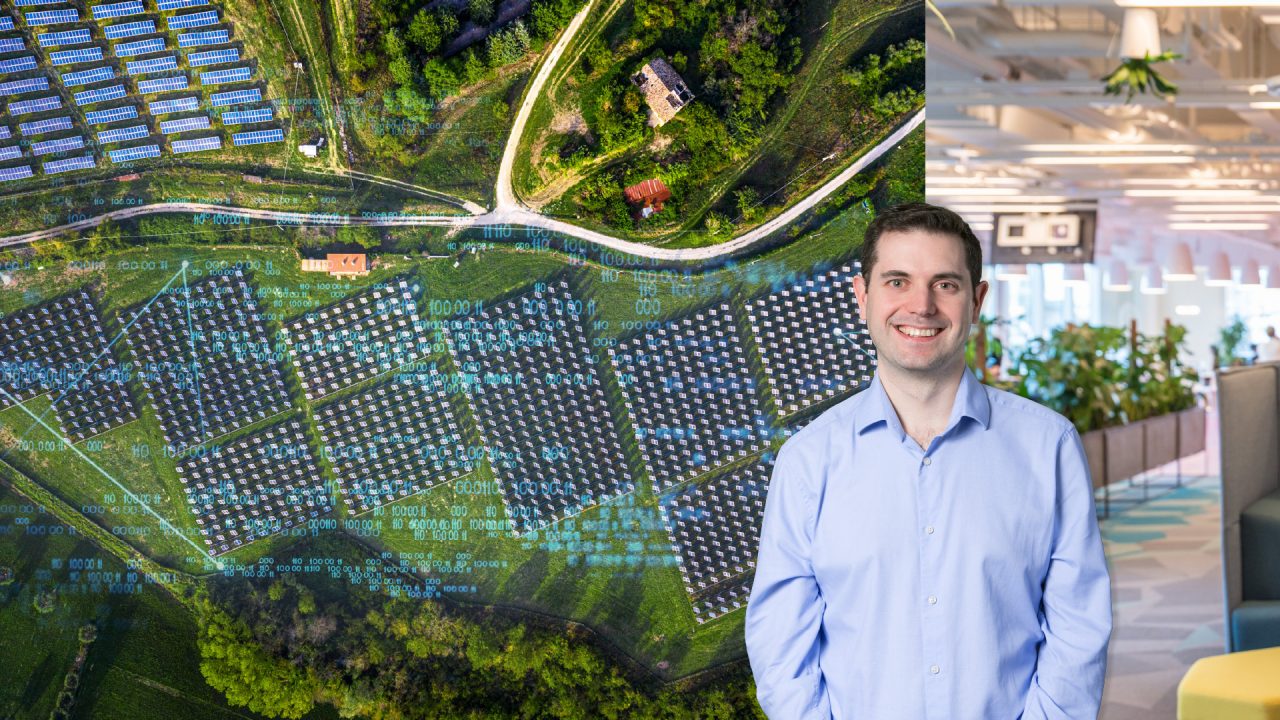

Our people
From finding efficiencies to helping to reduce operational risk, Damian Brennan's role as a Data Scientist sees him use data to inform decision making around the world.
Damian Brennan joined Macquarie in 2018 as a Data Scientist, having no experience in financial services. Instead, his background was in cancer research, biochemistry and IT consultancy.
He was part of a new team that was set up to help Macquarie to continue to deliver on its digital transformation and innovation strategy.
While Damian says that data science may have only recently hit the mainstream, in many respects it's not a new discipline at all.
"People have been using data and statistical approaches to make decisions for decades," Damian says. "The techniques are often very old. But it's become top of mind because everything is becoming digitised and storage and compute costs have dropped so it is more accessible to do machine learning computations on data."
"Organisations create data all day long," Damian says. "That data can just sit there and become a risk or it can be used to do a better job and find better way of doing things and new opportunities."
The addition of my team was part of Macquarie’s increasing focus on technology, where we aim to equip our clients and ourselves for the technology revolution by investing in platforms, alongside new technology start-ups and also in our own capability."
His team is focused on using data to improve Macquarie's internal and external processes and outcomes. His work has spanned many areas of the organisation, from solar farm investments to stock market trades.
"Data is applicable across pretty much every area of the organisation because almost every process has been, or is being, digitised and there are a lot of different opportunities for using data in different ways to drive innovation," says Damian.
Damian has worked with Macquarie’s Market Operations team to look at ways of using data to better run their business and reduce risk. He's also worked with Macquarie's Private Equity team to investigate how they can use data to help identify new transaction opportunities.
"Another field in which data science has been used is in looking at wider opportunities in both the marketplace and Macquarie's investments. This has already included reducing downtime and intermittency at some of Macquarie's renewable energy investments to increase energy production," he says.
Damian has also had a role in upskilling colleagues at Macquarie in how to use data to make better decisions.
"We believe that as well as having specialists in data we should also enable others to use data more effectively when making decisions," he says. "We need to be diligent about proper use within Macquarie’s robust risk management framework, but where appropriate make data available to help drive new opportunities and improvements across the organisation."
Damian says that being an effective Data Scientist requires a blend of skills.
"These range from strong curiosity and the ability to come up with ideas and hypotheses to an aptitude for statistics and maths. Good data analysts also need technical code writing skills and the ability to communicate effectively with others," he says.
But Damian also notes that it’s a diverse team of people that complement Data Scientists, including specialised roles like data engineers, statisticians and analytical translators.
Damian says that one part of the job he enjoys most is finding the problems that need to be solved.
"People think data science is all numbers, but actually qualitative thought is absolutely crucial," he explains. “Any business decision based on AI, algorithms or any other processes, needs to consider the wider picture," Damian explains.
Because of this, a lot of his job involves asking questions.
"What are you worried about? What is the business trying to do? How could making a decision in a better way have a positive impact?" Damian asks.
He and his team then look into feasibility, ethics, the availability of relevant data and potential models.
"We don't usually know if something is going to work or not until we do the analysis, so there is a degree of experimentation going on," explains Damian.
Damian holds a PhD from the Institute of Cancer Research and a Masters in Biochemistry. Before starting at Macquarie, he spent nine years working in IT consultancy.
While his background in cancer research may seem a world away from financial services, he says he has been able to leverage the approach and attitude from his PhD to use data in innovative ways to improve outcomes.
"I'm not alone at Macquarie with a PhD in Science," Damian explains. "These skill sets have become increasingly valued by organisations because scientists bring a curiosity-based approach, and familiarity with experiments, data and innovation."
Damian says he enjoys working in the small, collegiate teams Macquarie is built around and the sense of ownership this gives him.
"What's nice about Macquarie is that it has a non-hierarchical structure which means it’s easy to get hold of senior people, even when you are working globally with Australia and the US," Damian says.
The culture is very open, and Macquarie gives you the space to roll up your sleeves, seize opportunities and make things happen."
Ready to start your career with Macquarie?
Have a question about the recruitment process or working at Macquarie?